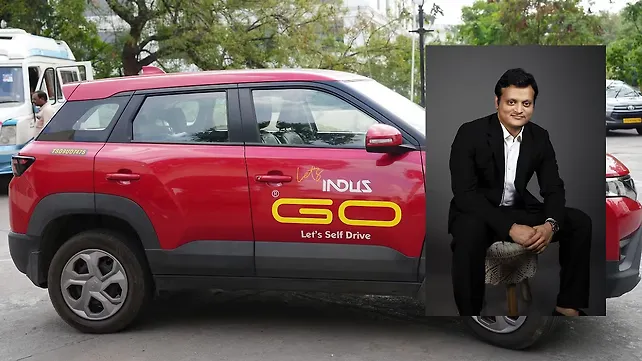
IndusGo is actively exploring the options of introducing electric cars and two-wheelers in its fleet of self-driving vehicles. In a conversation with Mobility Outlook, Afdhel AW, Founder, IndusGo, shared that the company plans also include exploring electric four-wheelers and two-wheelers for the logistics, transportation, and deliveries segment.
“We are actively looking at Tata Ace EV and similar vehicles, and are also studying whether self-drive rental vehicles for B2B (transportation & delivery) segment can be a viability in the long-term,” he said.
Notably, the company has recently inducted 50 Tiago EVs in its fleet of 720 vehicles and is in the process of investing in 150 more electric cars and over 100 electric two-wheelers. Afdhel is of the view that self-drive car companies like IndusGo will be the ones that will help a lot of consumers experience an EV for the first time.
“Consumers may not be confident about the EV technology but a lot of them would definitely experience their first EV via IndusGo. This is where we will play our role in making the environment clean and green,” he said. In what is said to be one of the tipping points for electric vehicle maker Tesla, car rental company Hertz announced plans to buy 100,000 Tesla cars in 2021.
Afdhel added, “If you look at history, a lot of OEMs and car rental companies have tied up, and the same has proven to be a tipping point for many.”
Asset Heavy Model
Unlike most other self-drive car rental companies, IndusGo relies on owning assets. Also known as an asset-heavy model, this requires a company to buy assets (cars, in this case). On the other hand, an asset-light model in a self-drive car rental company uses cars deployed by individual or institutional investors.
AW explained, “To be honest, none of the car rental companies operating on the asset-light model have been able to find that sweet spot in the business. I think the learning curve for this vertical is still happening.”
According to him, there is no problem with the demand for self-drive rental cars in India. Further, owning assets means being able to liquidate them “when in need of cash.” It also gives a company 100% control of the assets translating to the right deployment wherever and whenever needed.
Having raised INR 100 crore from Indus Motor recently, the company is now looking towards aggressive expansion in terms of marketing and educational activities. AW highlighted that being backed by Indus Motor also makes this asset-heavy approach of the company positive.
“Indus Motor has over 76 touchpoints in Kerala and retails over 25,000 vehicles of different OEMs every year via its dealerships. IndusGo has been given a free hand to use these touch points for servicing and parking vehicles,” Afdhel said. Last fiscal the company reported revenue of INR 2,800 crore.
Expansion Across Metro Cities
While the company is eyeing expansion in Bengaluru, Mumbai, Delhi, and other major Indian cities, it is not looking towards VCs for funding. AW points out that VCs want their money to go into marketing rather than buying assets, and until IndusGo is able to find a partner with a matching mindset, it will not say a yes for VC funds.
“We are looking towards an IPO, but not looking at a VC kind of a model,' Afdhel said. He believes that while much technology is needed to enable and run a self-drive car business in a country like India, it is still not a “technology business” but a “service business.”
For instance, he explains that Uber and Ola are technology businesses, but a self-drive car is a service business. IndusGo expects that people renting self-drive cars for a few days will be the consumers contributing most of the revenue. Unless and until, taxes levied on leased cars are brought down, the segment may not grow.
As per a report by Knowledge Sourcing Intelligence, the Indian car rental market is projected to grow at a CAGR of 9.83% to reach $2.03 billion by 2026, from $1.05 billion in 2019.